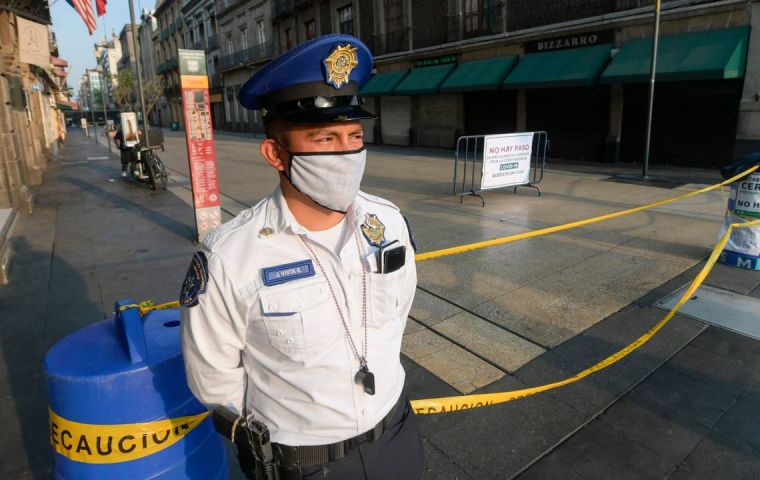MercoPress. South Atlantic News Agency
IMF fears social unrest could erupt if measures to mitigate pandemic are seen as unfair or insufficient
 Efforts to halt the disease have shut down large swaths of the global economy, with emerging market and developing countries likely to be hardest hit.
Efforts to halt the disease have shut down large swaths of the global economy, with emerging market and developing countries likely to be hardest hit. New waves of social unrest could erupt in some countries if government measures to mitigate the coronavirus pandemic are seen as insufficient or unfairly favoring the wealthy, the IMF said in a new report on Wednesday.
Governments had already spent nearly US$8 trillion to combat the pandemic and mitigate the economic fallout, but more fiscal stimulus would be needed once the crisis abated, the global lender said in its semi-annual Fiscal Monitor.
The spike in spending would sharply widen fiscal deficits, with global public debt set to rise 13 percentage points to more than 96% of gross domestic product in 2020, it said.
On Tuesday, the IMF forecast the global economy to shrink 3.0 per cent during 2020 as a result of the pandemic, but warned that its forecasts were marked by “extreme uncertainty” and outcomes could be far worse.
Efforts to halt the disease have shut down large swaths of the global economy, with emerging market and developing countries likely to be hardest hit.
While mass protests are unlikely with strict lockdowns in place, unrest could spike when the crisis appeared to be under control, Vitor Gaspar, director of the IMF's fiscal affairs department said in an interview.
To avert further unrest following numerous protests in many parts of the world over the past year, policymakers must communicate with affected communities to build support for measures to tackle the virus, he said.
In India's commercial capital of Mumbai, thousands of jobless migrant workers protested on Tuesday at a railway station, demanding to be allowed to return to their homes in the countryside, after Prime Minister Narendra Modi extended a lockdown of the population of 1.3 billion.
Unemployment has almost doubled to around 14.5% in India since the lockdown began in late March, according to the Centre for Monitoring Indian Economy, a private think-tank. In
India and elsewhere, shutdowns have sparked an exodus of millions of workers from city jobs in small industries and service jobs back to their home villages.
Daily wage earners are particularly vulnerable, and many are already having to skip meals, say World Bank officials.
IMF chief economist Gita Gopinath said previous crises and disasters had fostered solidarity, but there could be a different outcome this time.
“If the crisis is badly managed and it's viewed as having been insufficient to help people, you could end up with social unrest,” she said. To avoid future protests, she added was critical for the international community to play a supportive role for poorer countries through concessional financing and debt relief.
The report said government spending to date included direct fiscal costs of US$3.3 trillion, public sector loans and equity injections of US$1.8 trillion, plus US$2.7 billion in guarantees and other contingent liabilities of US$2.7 trillion.
It forecast lower output and said government revenue was now forecast to be 2.5% of global GDP, lower than was projected in October.




Top Comments
Disclaimer & comment rulesCommenting for this story is now closed.
If you have a Facebook account, become a fan and comment on our Facebook Page!